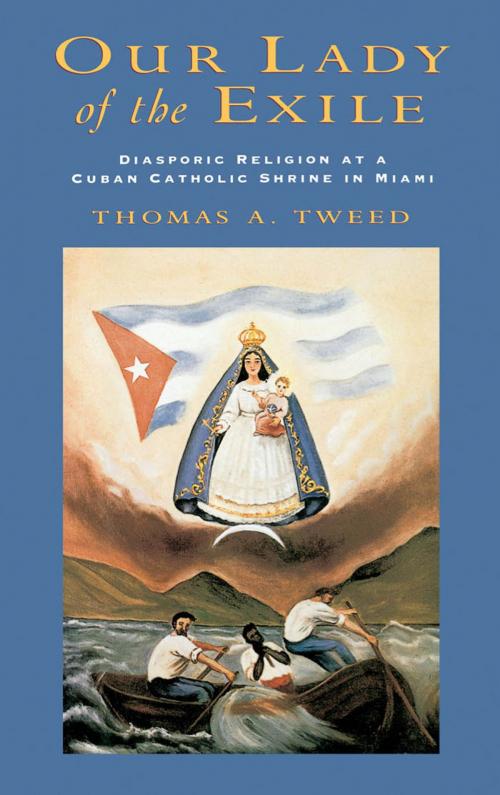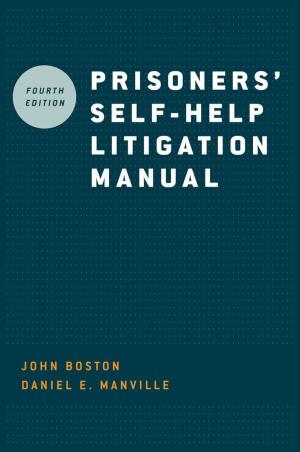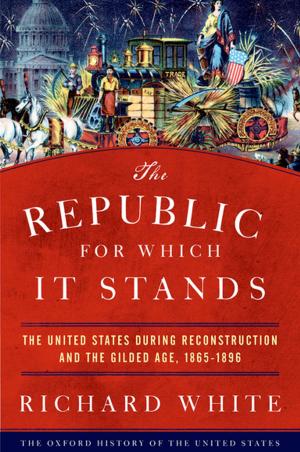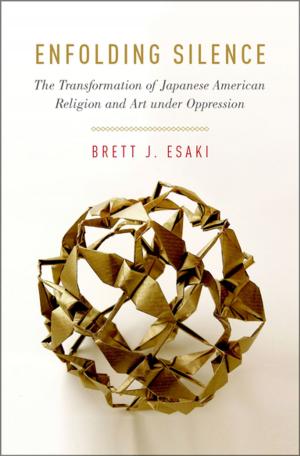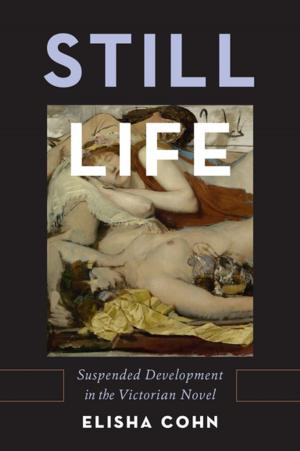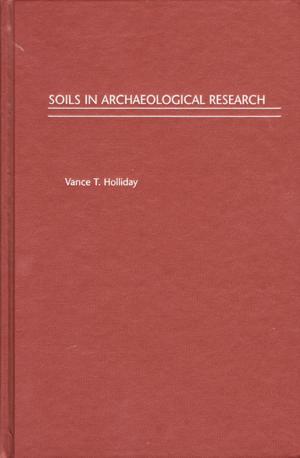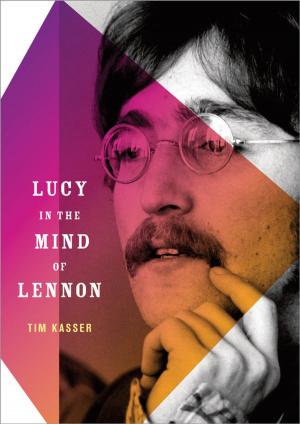Our Lady of the Exile
Diasporic Religion at a Cuban Catholic Shrine in Miami
Nonfiction, Social & Cultural Studies, Social Science, Sociology, Marriage & Family, Religion & Spirituality, Christianity, Denominations, Catholic, Catholicism| Author: | Thomas A. Tweed | ISBN: | 9780190283018 |
| Publisher: | Oxford University Press | Publication: | October 2, 1997 |
| Imprint: | Oxford University Press | Language: | English |
| Author: | Thomas A. Tweed |
| ISBN: | 9780190283018 |
| Publisher: | Oxford University Press |
| Publication: | October 2, 1997 |
| Imprint: | Oxford University Press |
| Language: | English |
Our Lady of the Exile is a study of Cuban-American popular Catholicism, focusing on the shrine of Our Lady Charity in Miami. Drawing on a wide range of sources and using both historical and ethnographic methods, the book examines the religious life of the Cuban exiles who visit the shrine. Those pilgrims are diverse, and so are the motives that bring them. At the same time, author Thomas A. Tweed argues, Cuban devotees of the national patroness share a great deal. Most come to pray for their homeland and to recreate bonds with other Cubans, on the island and in the diaspora. The shrine is a place where they come to make sense of themselves as an exiled people. The religious symbols there link the past and present and bridge the homeland and the new land. Through rituals and artifacts at the shrine, Tweed suggests, the Cuban diaspora "imaginatively constructs its collective identity and transports itself to the Cuba of memory and desire." While the book focuses on Cuban exiles in Miami, it moves beyond case study as it explores larger issues concerning religion, identity, and place. How do migrants relate to heir homeland? How do they understand themselves after they have been displaced? What role does religion play among these diasporic groups? Building on this study of one exiled group, Tweed proposes a theory of diasporic religion that promises to illuminate the experiences of other groups that have been displaced from their native land. As the first book-length analysis of Cuban-American Catholicism, Tweed's book will be an invaluable resource to scholars and students of not only Religious Studies, American Studies, and Ethnic Studies, but also those who study cultural anthropology, human geography, and Latin American history.
Our Lady of the Exile is a study of Cuban-American popular Catholicism, focusing on the shrine of Our Lady Charity in Miami. Drawing on a wide range of sources and using both historical and ethnographic methods, the book examines the religious life of the Cuban exiles who visit the shrine. Those pilgrims are diverse, and so are the motives that bring them. At the same time, author Thomas A. Tweed argues, Cuban devotees of the national patroness share a great deal. Most come to pray for their homeland and to recreate bonds with other Cubans, on the island and in the diaspora. The shrine is a place where they come to make sense of themselves as an exiled people. The religious symbols there link the past and present and bridge the homeland and the new land. Through rituals and artifacts at the shrine, Tweed suggests, the Cuban diaspora "imaginatively constructs its collective identity and transports itself to the Cuba of memory and desire." While the book focuses on Cuban exiles in Miami, it moves beyond case study as it explores larger issues concerning religion, identity, and place. How do migrants relate to heir homeland? How do they understand themselves after they have been displaced? What role does religion play among these diasporic groups? Building on this study of one exiled group, Tweed proposes a theory of diasporic religion that promises to illuminate the experiences of other groups that have been displaced from their native land. As the first book-length analysis of Cuban-American Catholicism, Tweed's book will be an invaluable resource to scholars and students of not only Religious Studies, American Studies, and Ethnic Studies, but also those who study cultural anthropology, human geography, and Latin American history.
